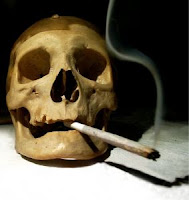Finding an Effective Drug Treatment
Many
drug addiction treatment programs currently being offered by rehab centers worldwide include the use of various types of drugs to remove the so-called drug addiction disease. Nonethelesss, this type of approach is only effective to a certain extent. The initial goal of a drug addict seeking help is to be rid of drugs, for good.
So why treat a drug addiction, with more drugs? No one enjoys, much less wishes, to be dependent on medication or other illicit drugs their whole lives. The Narconon
drug addiction treatment addresses this issue with its unique biophysical, 100% natural and drug-free drug abuse treatment program.
A Drug-Free Addiction Treatment
With a 70% success rate, the Narconon drug treatment center has proven for over 40 years that its completely drug-free and long-term
drug addiction treatment program works. Our expertise and unique methods allow us to provide a comprehensive
drug addiction treatment that uses no substitute drugs, and provides the drug addict with the necessary tools to go on and live a stable, balanced and productive life. All of this, drug-free of course.
The drug rehabilitation program of Narconon has results. Our drug rehabilitation program has helped thousands of individuals go on to live productive, drug-free lives.
* Narconon Program Steps
* - Drug-Free Withdrawal
* - Sauna Detoxification
* - Life Improvement Courses
* Effectiveness of the Program
* Typical Results
* Program Endorsements
* Narconon FAQ
*
--
* Scientific Research
* - Reduction of Drug Residues
* - Summary of Evaluations
* - Drug Detoxification Procedure
Our 100 % natural drug detoxification method ensures that no substitute drugs are used throughout the program.
70% our our graduates are still drug-free two years after completing the program.
Life improvement courses provide the students with the necessary tools to live their whole lives drug-free.
Narconon Drug Rehab Program - Overview
Has your loved one tried drug rehabilitation in 12 step programs, only to fail? For many families, alcohol and
drug addiction treatment have been only marginally successful. Too many times, families and friends of drug addict and alcoholic have seen their loved ones go through programs again and again. Finally, there is something different.
Our program does not adhere to the traditional group therapy or therapist approach. In fact,
Drug Rehab Program
the 1st third of the program concentrates on cleaning the body of all its unwanted toxins (drugs, alcohol, medication, pesticides). This is a physical cleanup and may take more than 30 days in a specially designed sauna, which induces sweating without the unwanted dizziness due to lack of air inherent to standard saunas.
The quality of our saunas is very important, since our clients spend 4.5 consecutive hours in them every day, until there is no longer any sign of any toxin whatsoever in their bodies, as attested by our case supervisor.
Visit the Narconon Facilities!
Visit the Narconon Facilities Today!
Over 100 000 ex addicts can testify of the success of our program. Everyone afflicted by a drug problem has as this ultimate goal in life to unleash themselves from the shackles which have rendered their lives unbearable. The amount of time spent on this habit surpasses by hundreds of times, the amount one would spend on a program that would rid him of this habit, only if the program works.]
Drug Addiction TreatmentVisit the Narconon Facilities Today!












